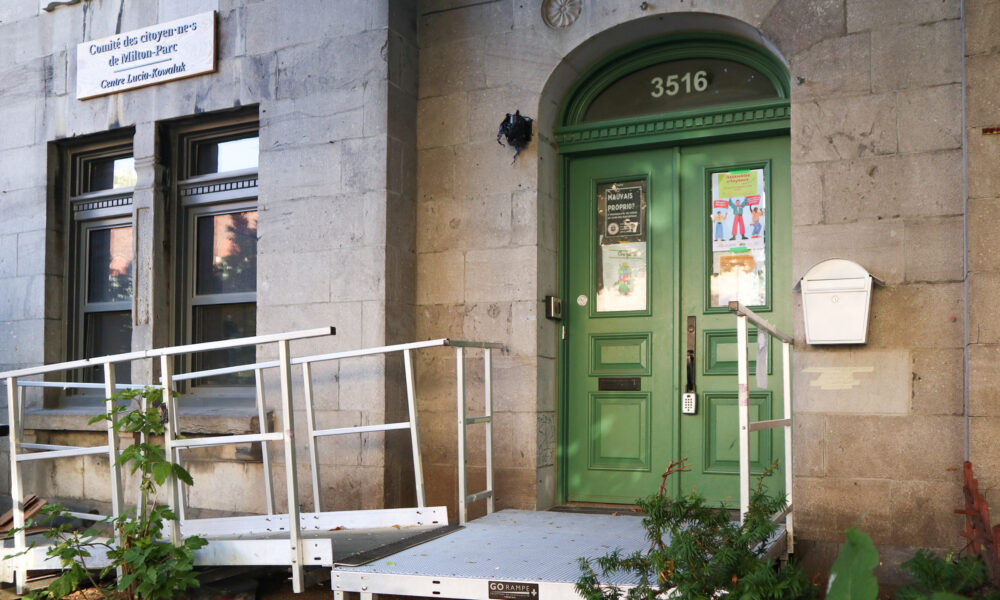On Aug. 8, four McGill unions signed an open letter in solidarity with the Quebec Public Interest Research Group (QPIRG) in response to McGill’s notice of default on QPIRG’s Memorandum of Agreement (MoA). In the notice, the university threatened to suspend student funding to the group if it did not retract its support for the Solidarity for Palestinian Human Rights (SPHR).
In their open letter, the four unions—the Association of McGill University Support Employees (AMUSE), the Association of Graduate Students Employed at McGill (AGSEM), the Association of McGill University Research Employees (AMURE), and the Association of McGill Professors of the Faculty of Arts (AMPFA)—condemned this notice of default and praised QPIRG for its invaluable contributions to McGill’s community, including its textbook loan program, community research, and affordable programming. Suspending their funding would jeopardize these initiatives, creating disadvantages for students relying on the affordability and opportunities QPIRG provides.
The open letter raised concerns about the threat to organizational autonomy that the notice of default poses; the termination of QPIRG’s MoA not only demonstrates McGill’s neglect of the group’s crucial role in the uplifting of the McGill community, but also follows a broader pattern of hostility towards peaceful pro-Palestinian activism.
This is not the only time McGill has targeted a student organization for its support of the Palestinian liberation movement. McGill sent a notice of default to SSMU in July 2024, claiming that SPHR—which was then a SSMU-sanctioned club—was violating the MoA between the union and McGill by “intimidating and harassing” community members despite its peaceful protests. In this letter, McGill demanded that SSMU remove SPHR’s status as an official SSMU organization and halt its funding, eventually threatening to terminate SSMU’s contract if they failed to do so. Despite disagreeing with the notice of default, SSMU removed SPHR from its official clubs. This decision was made concerning how the threat of further action would hinder SSMU’s ability to sustain its clubs, services, and members.
In perhaps its most blatant abuse of institutional power to date, McGill sent a notice expressing intent to terminate its contract with SSMU in April for hosting a three-day strike that called for divestment from companies complicit in Israel’s genocide in Palestine. 72 per cent of voting SSMU members democratically voted for the strike. Although McGill and SSMU restored their MoA following a lengthy mediation period this past summer, threatening to cut ties with SSMU over the student strike is deeply hypocritical. McGill’s blatant pattern of violence against student activism —such as using tear gas against protestors and employing external police forces to dismantle the pro-Palestinian encampment in July 2024—demonstrates a blatant overreach of institutional leverage.
McGill’s willing and persistent repression of mobilization for—or even association with—the Palestinian liberation movement is deeply concerning, especially when this repression terminates crucial university services. Considering how essential both QPIRG and SSMU are to the McGill community, it is apparent that McGill will stop at no limits to stifle pro-Palestine action among the student body. Its multiple threats to terminate contracts with student-run organizations, simply for affiliating with the pro-Palestine movement unjustly strips these organizations of their organizational autonomy.
Furthermore, McGill’s despotic repression of student movements that do not align with its agenda is alarming. McGill students have historically played a central role in social movements, speaking out against the apartheid in South Africa and the Vietnam War. If student advocacy back then pushed McGill to become the first Canadian university to divest from South Africa, then McGill should treat students’ pro-Palestinian activism with due respect. McGill must rescind its notice of default on QPIRG and allow them to continue to support SPHR and its pro-Palestinian efforts; it is not for them to dictate what their students can or cannot advocate for.









